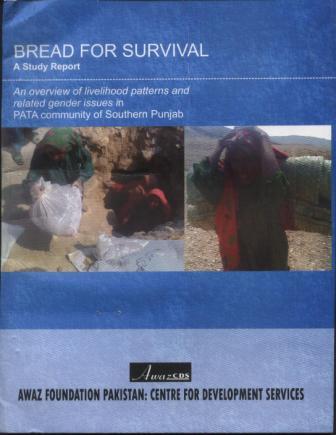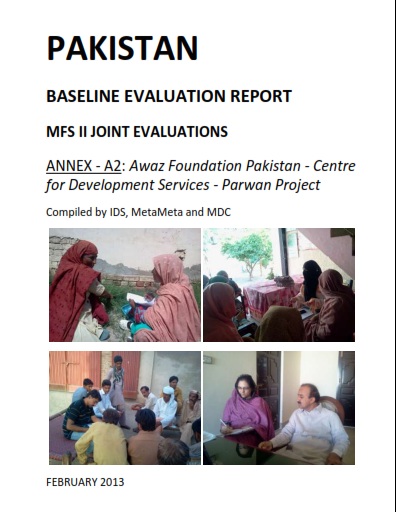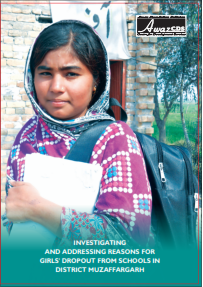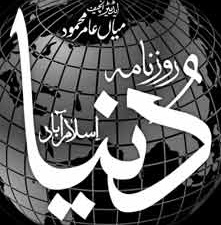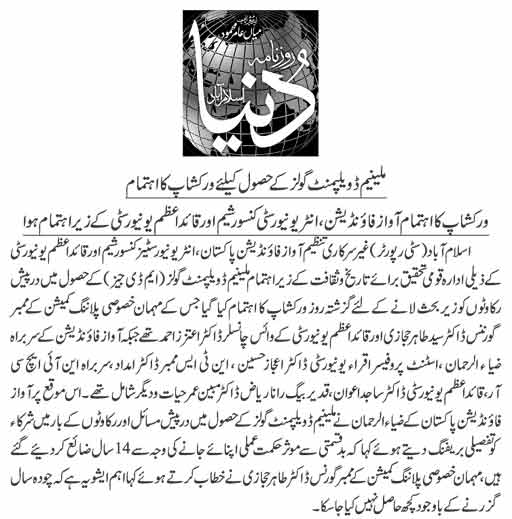-
CALL FOR EXPRESSION OF INTEREST: TRAINING CONSULTANTS
Awaz Foundation Pakistan: Centre for Development Services- is striving for the Socio-economic development and political empowerment of marginalized communities especially women and young people across Pakistan since 1995. AwazCDS-Pakistan follows rights based approaches for sustainable development, poverty alleviation and achieving SDGs. AwazCDS Pakistan is seeking for qualified training consultant to develop and implement two days training manuals on Reproductive health (RH) & Gender based violence (GBV) on each of two trainings (Basic & Advance) for Ujala project.
Background
Ujala is a two year long project and consists on following components:
- Gender-based violence
- Access to comprehensive reproductive health services
- Access to Life Skills Based Education
- Challenging stigma, discrimination, attitudes related to RH & GBV
- To stop early age marriages for safe motherhood
Description of engagement/ deliverables:
- Develop training manuals in each for basic & advance trainings. (2 separate manuals in English for basic and advance).
- Draft training program outline, agenda, training related materials/handouts, presentations.
- Conduct two-days (2) training, each in all 4 provincial headquarters.
- Submit a report on the outcome of the training.
The working language of the training will be Urdu & English. The two trainings will be organized on July & September, 2017. Refresher will be conducted in first quarter of 2018.
First training: Basic training will be conducted at all 4 provincial headquarters with provincial & district partners.
Second training: Advance training will be conducted at all 4 provincial headquarters with provincial & district partners.
Refresher: It will be conducted at all 4 provincial headquarters with provincial & district partners.
Duration of trainings:
Basic and advance trainings will be of 02 days each at 4 Provincial levels.
Refresher will be of 01 day at each provincial level.
Selection criteria:
The ideal candidates should have:
Master’s degree in relevant field, Minimum (8-10) years of professional experience in civil society development, strengthening the capacities of civil society organizations, developing and providing capacity building training programs in the field of SRHR, SGBV, non-discrimination, inclusion of ethnic minorities, gender equality, human rights and social inclusion.
Undertaking for availability of trainer for the above mentioned trainings is required.
Application process:
Interested candidates are requested to submit the following:
– Current CV; – Names and contacts of three (3) references, proposed net daily rate, Brief description of proposed methodology and training outline.
Please submit the requested documents to: job portal of HRDN no later than Wednesday, June 16th, 2017.
2. CALL FOR EXPRESSION OF INTEREST: Consultant for Developing Communication & Media strategy
Awaz Foundation Pakistan: Centre for Development Services- is striving for the Socio-economic development and political empowerment of marginalized communities especially women and young people across Pakistan since 1995. AwazCDS-Pakistan follows rights based approaches for sustainable development, poverty alleviation and achieving SDGs. AwazCDS Pakistan is seeking for qualified training consultant to develop Communication & Media strategy to address reproductive health and gender Based Violence.
Background
Ujala is a two year long project and consists on following components:
- Gender-based violence
- Access to comprehensive reproductive health services
- Access to Life Skills Based Education
- Challenging stigma, discrimination, attitudes related to RH & GBV
- To stop early age marriages for safe motherhood
We are focusing to cater all kind of media (print, social & electronic) and to all possible stakeholders, Government & influencers. Strategy should be developed till July 10th, 2017.
Selection criteria:
The ideal candidates should have:
Master’s degree in relevant field, Minimum (8-10) years of professional experience in communication sector, developing strategies in the field of SRHR, SGBV, non-discrimination, gender equality, human rights and social inclusion.
Application process:
Interested candidates are requested to submit the following:
– Current CV; – Names and contacts of three (3) references, Proposed rate, Brief description of proposed methodology and idea of Communication & Media Strategy.
Please submit the requested documents to: job portal of HRDN no later than Wednesday, June 18th, 2017.
